3 gold standard sleep hygiene habits that will help undo weeks of bad sleep and get you back on track
Experts reveal their top tips to fall back into great sleep
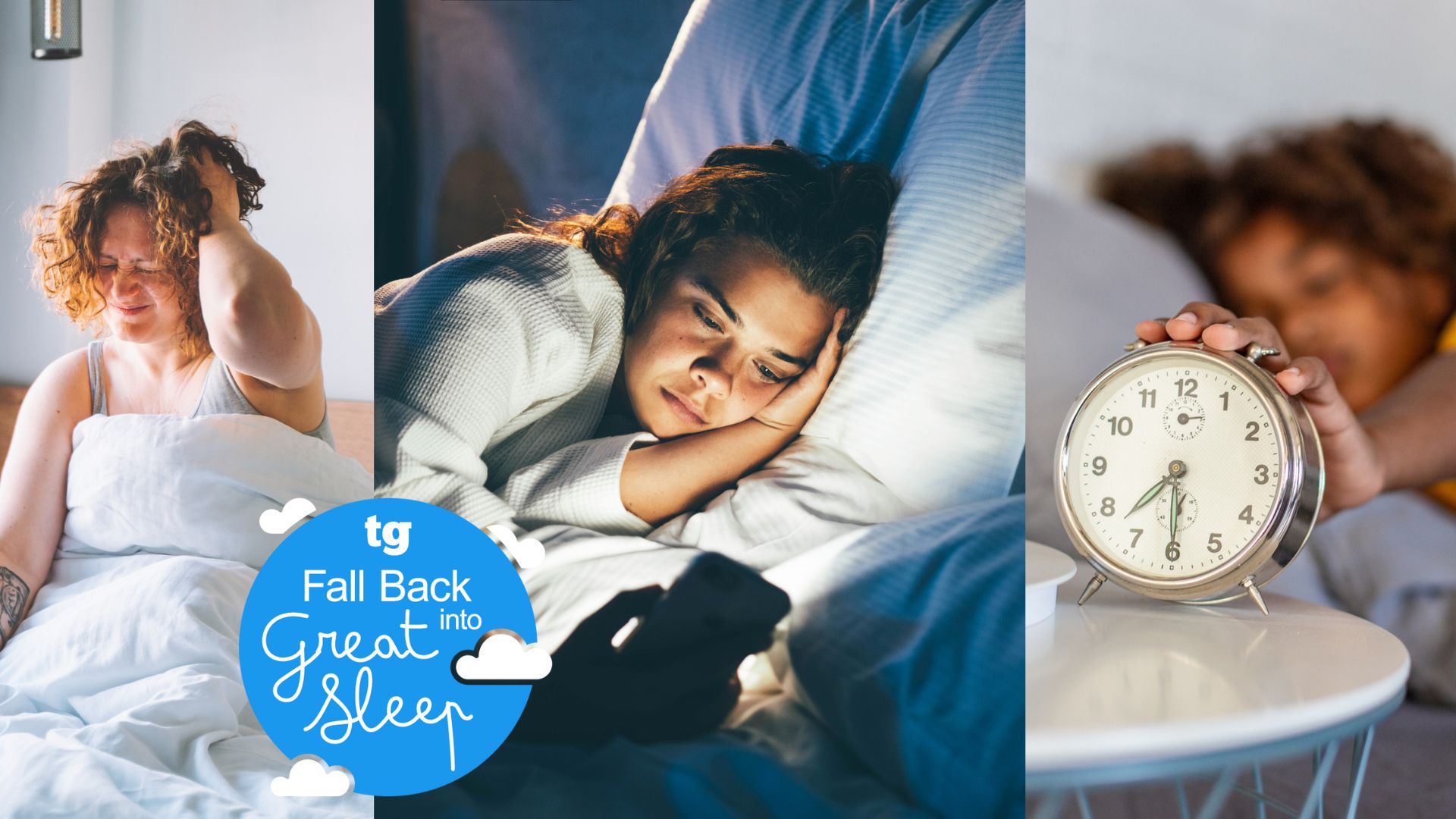
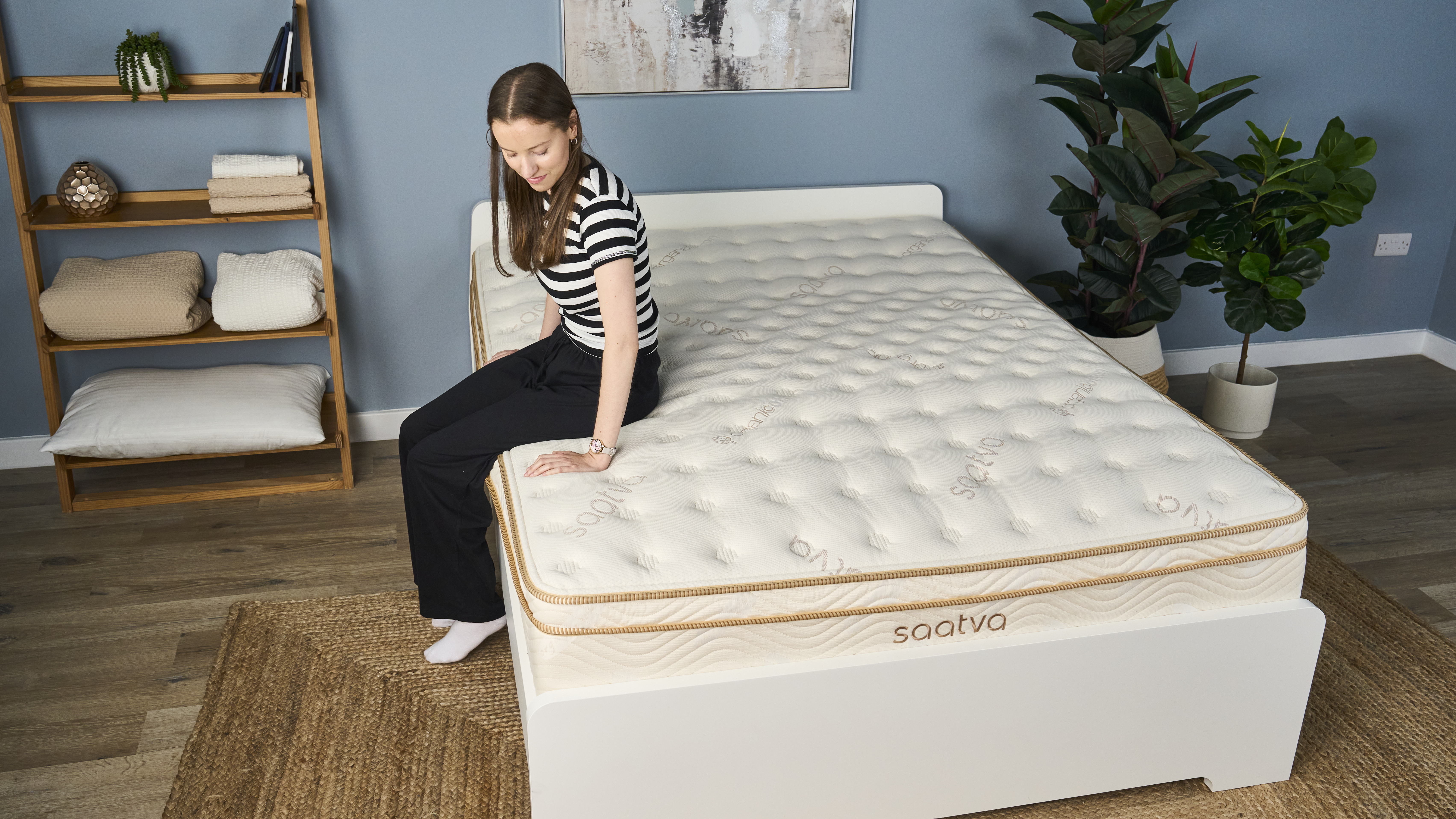
As you'll find out below, choosing the best mattress for your body and creating the ultimate sleeping environment should be one of your winter sleep non-negotiables.
Poor sleep hygiene, which can include anything from stress, late-night scrolling, or even the wrong temperature in your room, may affect how you sleep.
As you probably already know, a bad night's sleep can leave you feeling less focused, more stressed and can, in the long term, negatively affect your health.
However, by focusing on a few gold-standard sleep hygiene habits, you can reset your body clock and help improve your sleep quality.
Here, experts discuss the sleep tips they always recommend, and I also reveal my winter sleep non-negotiables as part of our week-long campaign to help our readers Fall Back into Great Sleep.
Can you really reverse weeks of bad sleep?
If you experience insomnia, have a newborn or travel a lot, you may wonder if it's possible to undo a period of bad sleep — well, there’s good and bad news.
Dr. Lindsay Browning says you can never fully reverse weeks of bad sleep, “but it’s never too late to start making positive changes."
It’s never too late to start making positive changes
"Short-term sleep loss can result in reduced performance and alertness, which can be recovered within a few nights of improved sleep," she explains.
Get instant access to breaking news, the hottest reviews, great deals and helpful tips.
While she explains that sleep debt can be reduced with a few nights of additional ‘catch-up’ sleep, she notes that "regularly getting sufficient sleep each night moving forward is the best way to improve your health for the future."
Indeed, research suggests that consistently missing out on sleep, even if you try and catch up on weekends, can come at a cost — and may lead to increased calorie intake, lower energy expenditure, weight gain and harmful changes in how the body processes insulin.
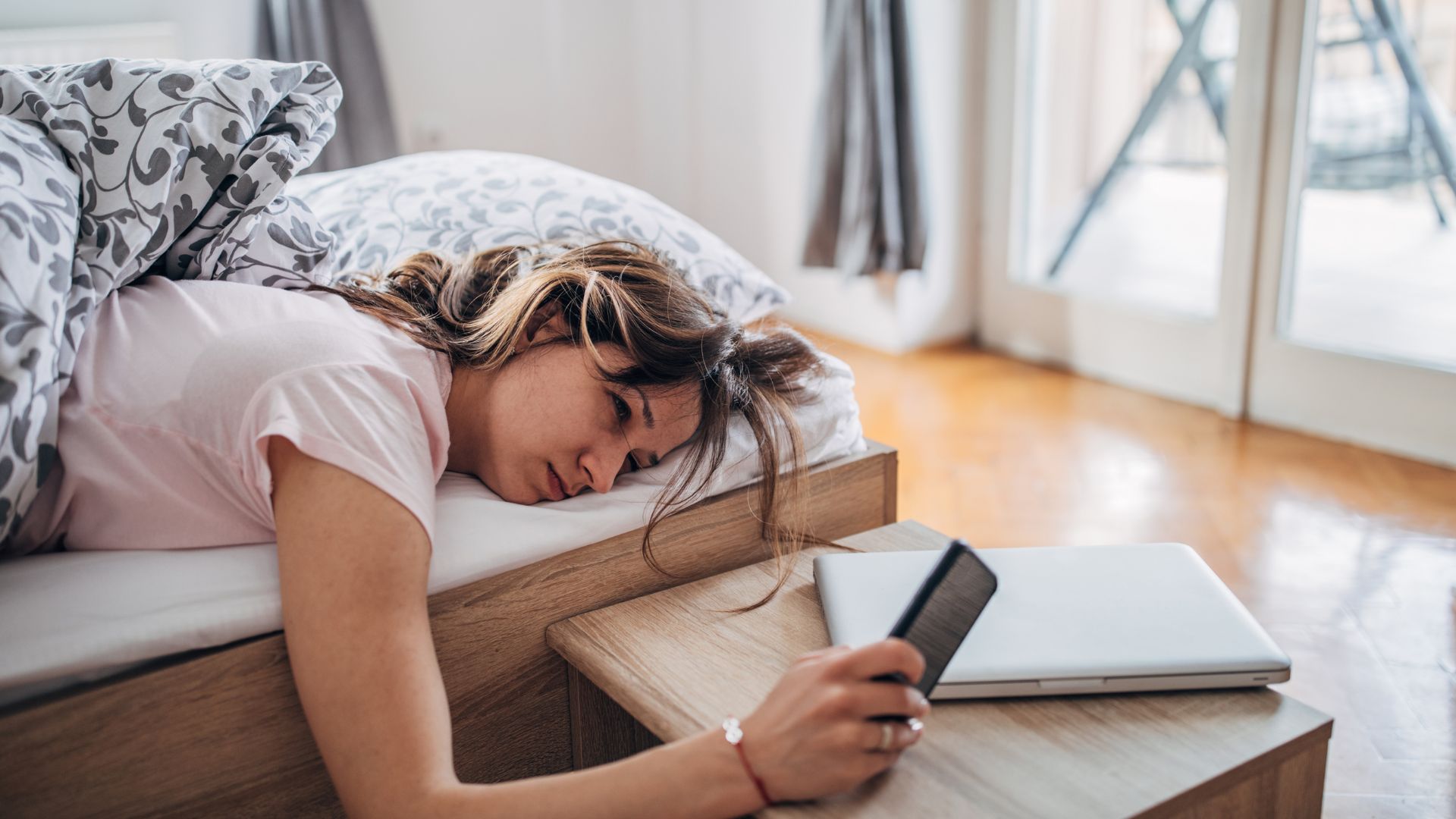
The 3-gold standard sleep hygiene tips that get your sleep back on track
Practicing good sleep hygiene all year round is essential, but if you’re struggling to reverse a pattern of bad sleep here are three top tips, from sleep experts in the know, to help you get back on track.
1. Set a bedtime and stick to it
One way to get better sleep every night is by keeping a regular wake-up time and a consistent bedtime seven days a week.
This helps your body “develop a robust circadian rhythm, which helps you to sleep at the right time at night,” explains Dr. Browning.
So, what happens if you don’t? The sleep expert says you may start to experience social ‘jetlag’.
“If you go to bed early and wake up early on weekdays but stay up late and have a lie-in on weekends, you’ll make it much harder to go to sleep early on a Sunday night ready for another early start on Monday morning.”
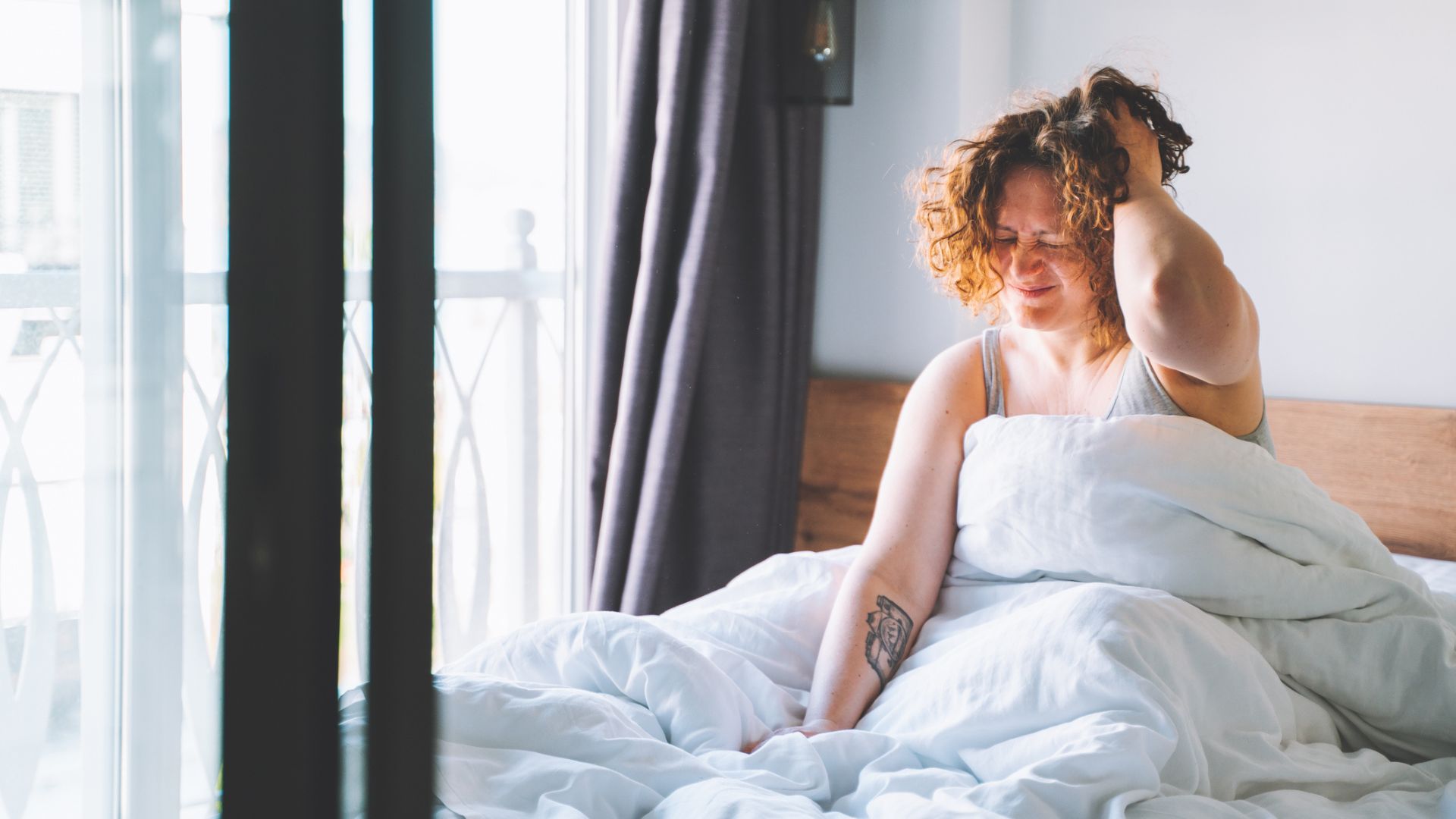
2. Get outside as soon as you can
If you’re commuting to and from work in winter, chances are you’re probably not getting much exposure to daylight, so it's worth taking a break to get outside as soon as the sun comes up. But why is light so important for sleep?
Melatonin is a sleep hormone that makes us feel tired. Melatonin is naturally released in the evenings in response to darkness, which is why we begin to feel tired. People often choose to take melatonin supplements at night to help fall asleep faster.
“When it’s dark outside (in winter), the brain gets mixed signals of when morning actually is (normally by dim light exposure indoors) — this leads to mixed signals of when bedtime is," says integrative sleep specialist at Helight, Ed O’Malley, who explains that a “strong natural light signal awakens the brain.”
Dr. Browning adds that exposure to natural daylight, especially during the morning, is also important for regulating your body’s circadian rhythm. “Bright light in the morning helps to suppress melatonin secretion, making you feel more awake.
“Reduced daylight exposure during winter means melatonin can remain elevated for longer periods of the day, making you feel more sluggish," the doctor adds.
But it can also reduce "the strength and timing of melatonin release at bedtime, meaning falling asleep can be more difficult.”
She adds that morning light can also help with the “natural morning rise in cortisol, which makes you feel more awake and alert.”
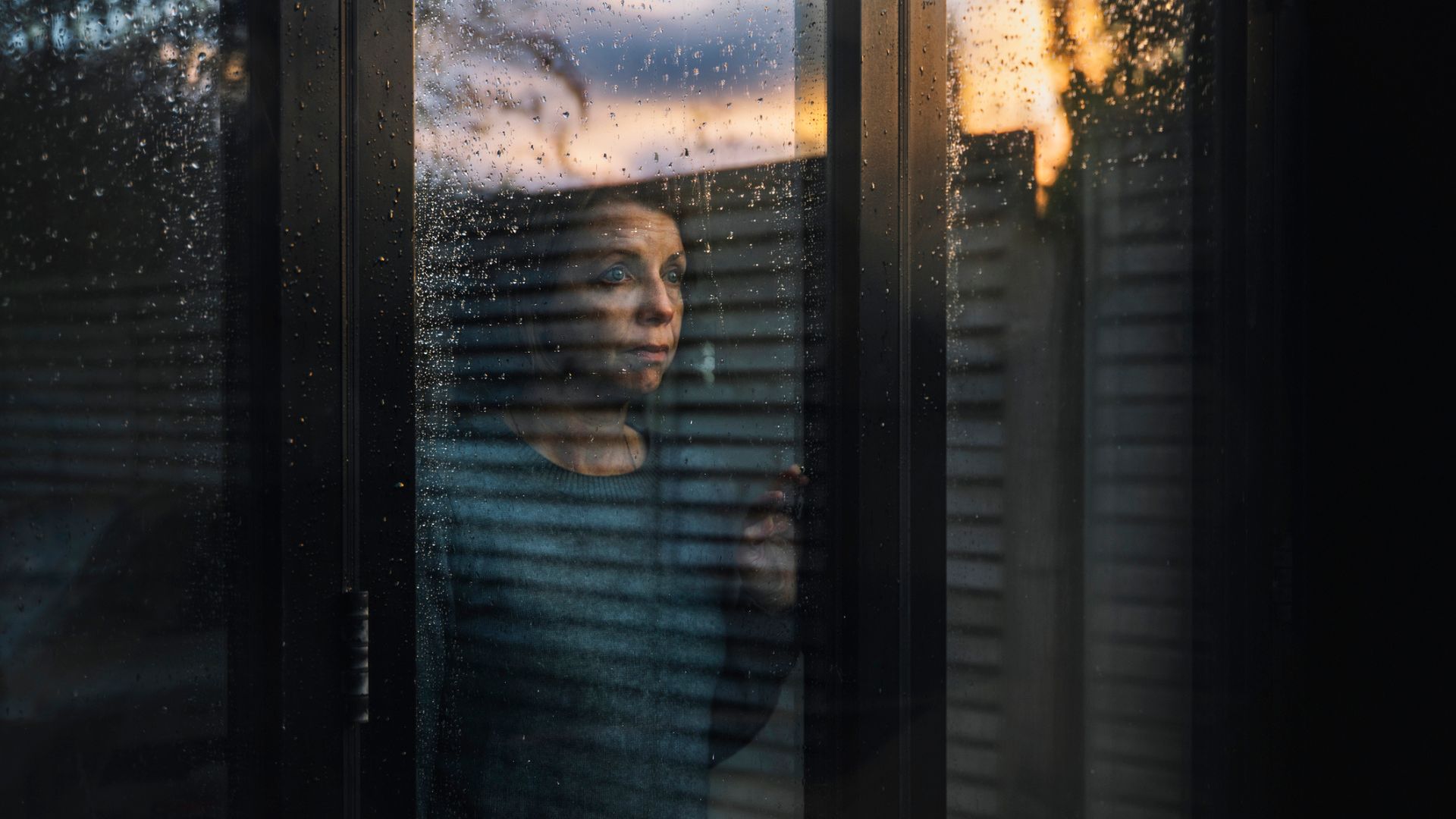
3. Repeat with me: Your bedroom is only for sleeping!
Are you guilty of working, watching TV, or worse, scrolling on your phone when you’re in bed, or even just in your bedroom? You should see this space as a sanctuary for sleep, and nothing else; otherwise, it sends mixed signals to your brain
“The bedroom is best kept for sleeping as other activities bring a variety of emotions and brain activation that also become associated with sleeping — and actually prevent an easy transition to sleep," explains O’Malley.
“The bedroom should be kept primarily for sleep and relaxing activities that promote sleep.”
Dr. Browning adds that by keeping the bed as a place for just sleep, your brain maintains “a strong link between your bed and sleep, making it easier to fall asleep when you want to.”
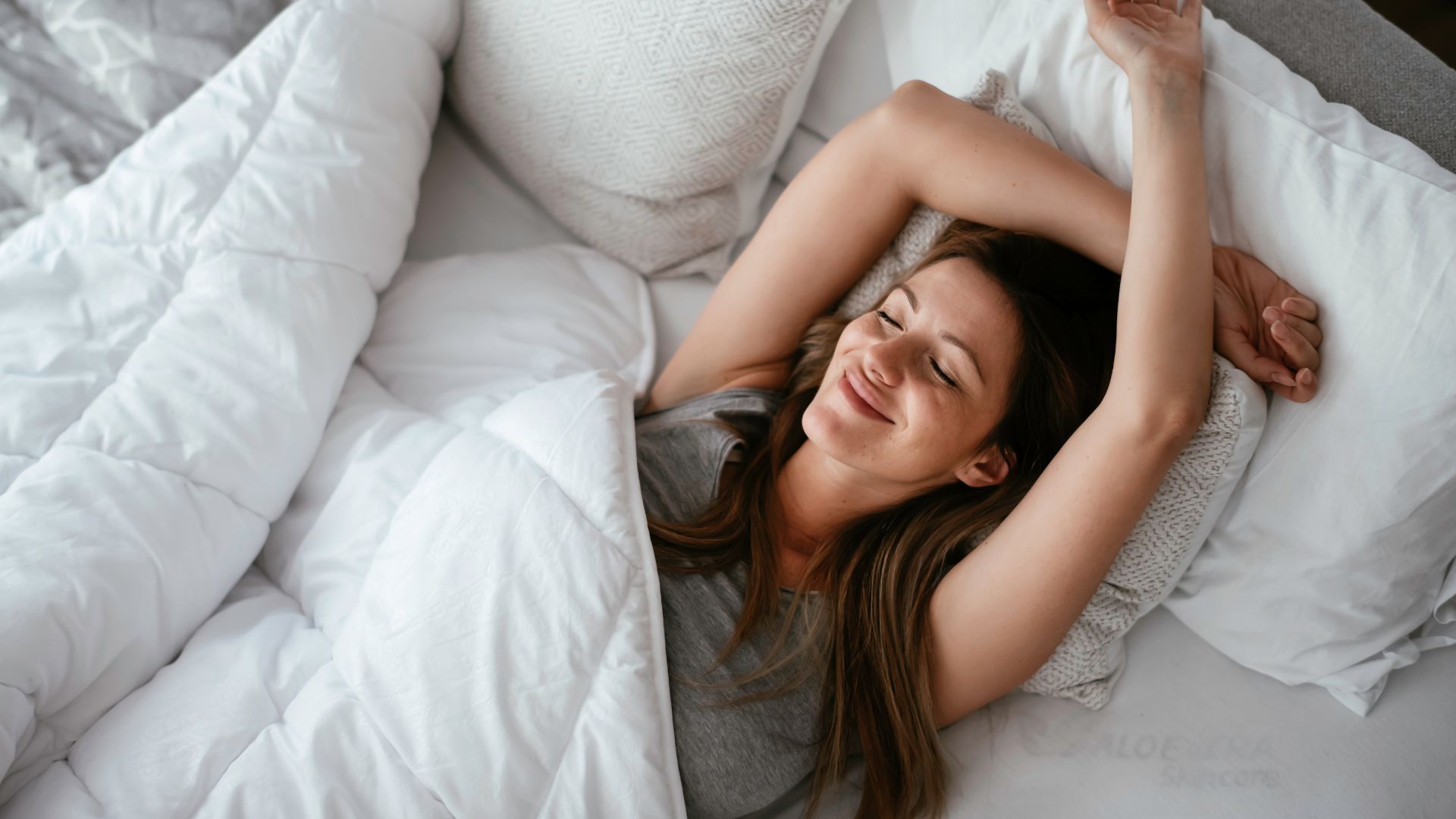
Why is it harder to sleep in the winter?
As the days get shorter and temperatures outside get colder, winter can take a toll on our mood, mental health, and sleep patterns.
“Reduced exposure to sunlight due to shorter days, plus increased bad weather, means people spend less time outdoors,” explains Dr. Browning.
“Light exposure affects our circadian rhythm, which is responsible for guiding sleep patterns, as well as our alertness and productivity throughout the day."
She adds that this decrease in getting natural light may also affect the availability of “serotonin (the happy hormone), resulting in a lower mood during the day.”
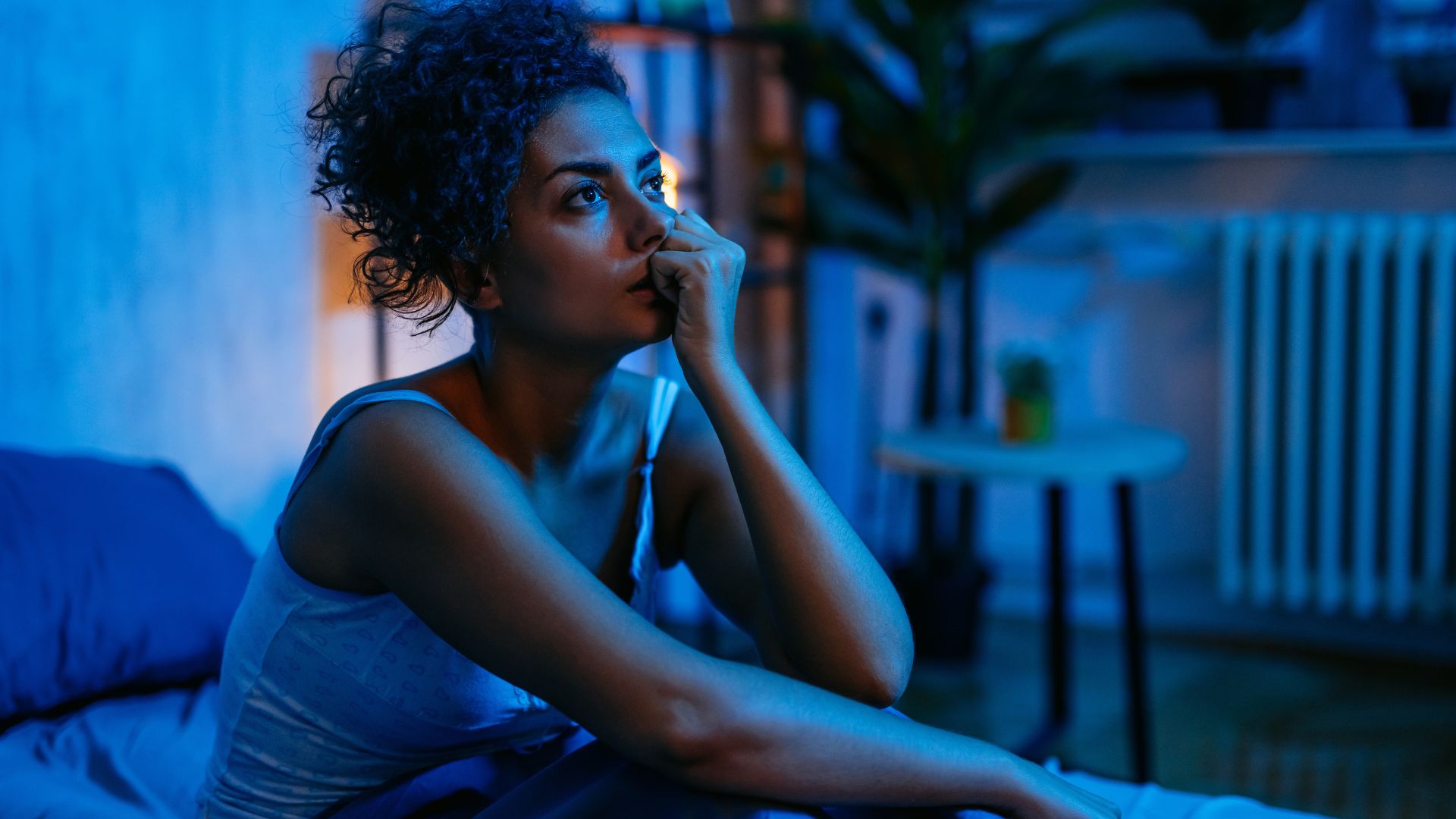
My other winter sleep non-negotiables
Sleep is hugely important to me, as a health and fitness journalist, I need to be focused and ready for the day, whether that’s to complete a deadline or to run a half-marathon.
Over the years, I’ve picked up tips from the experts I’ve spoken to and tried and tested different methods to find out what works for me. Here are some of my winter sleep non-negotiables:
Create the right sleep environment
Even in winter, I can’t stand feeling too hot at night, as it completely disrupts my sleep.
For adults, the ideal temperature for sleeping is a 65 to 70 F (18 to 21 °C)
To avoid that, I keep my bedroom well ventilated and turn the heating off while I’m in bed, setting it to come on just before I wake up.
I also wear socks and breathable pyjamas to stay comfortable without overheating (surprisingly, wearing socks at night can actually help reduce your core body temperature). Investing in the best hybrid mattress has also helped me sleep more comfortably.
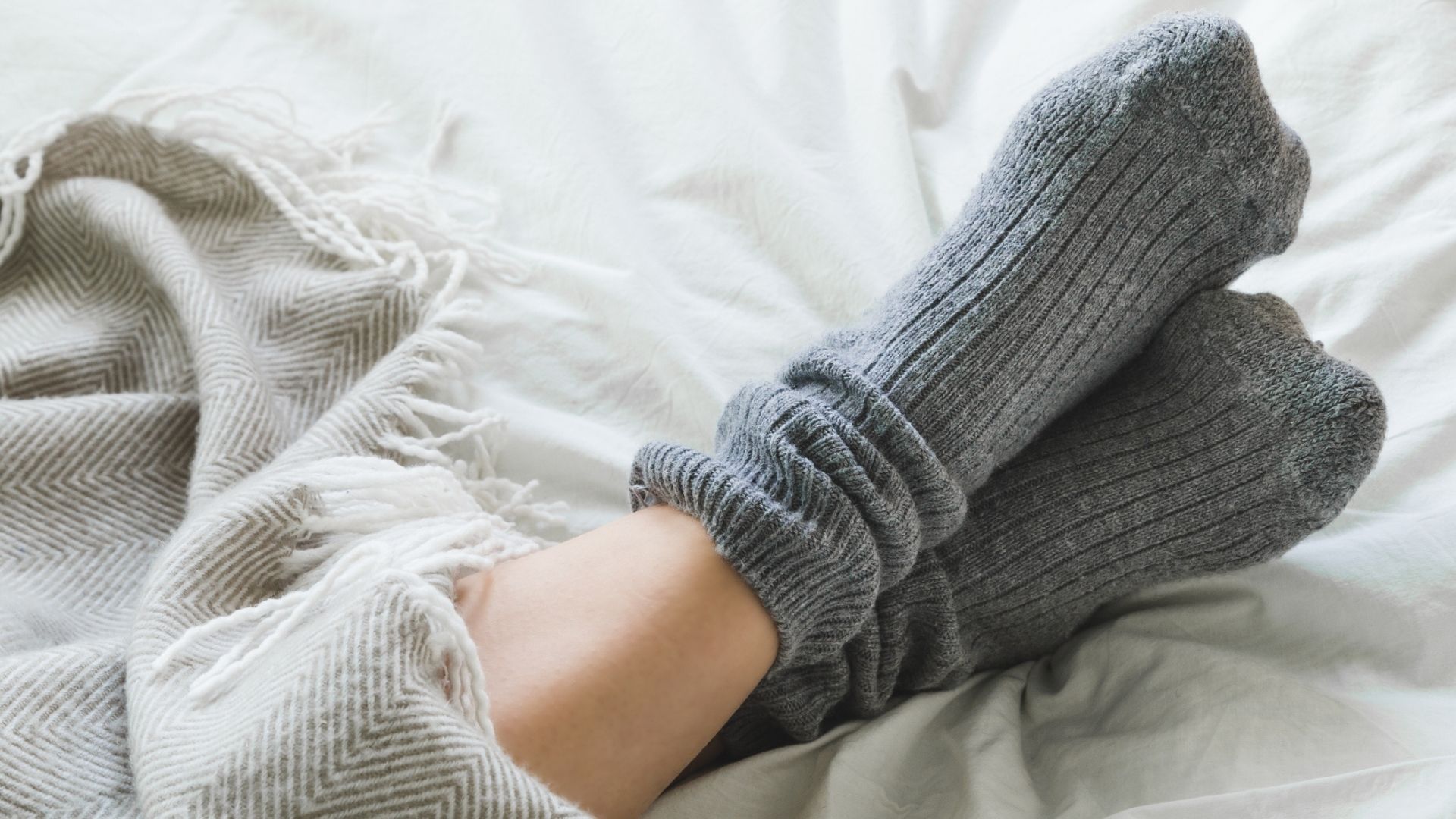
Take a magnesium supplement
A magnesium glycinate supplement has been my go-to for the last couple of years, as it helps me drift off more easily, while it also helps with anxiety or stress-related sleep problems.
It's important to consult a doctor before adding any supplements to your diet
And, a 2023 review of studies into the relationship between magnesium and sleep health found that randomized controlled trials "reported a positive effect of magnesium supplementation on PSQI score, sleep efficiency, and sleep time."
Although it's important to consult a doctor before adding any supplements to your diet (magnesium is generally safe but some people need to avoid it), I've found that magnesium glycinate works for me.
Use technology
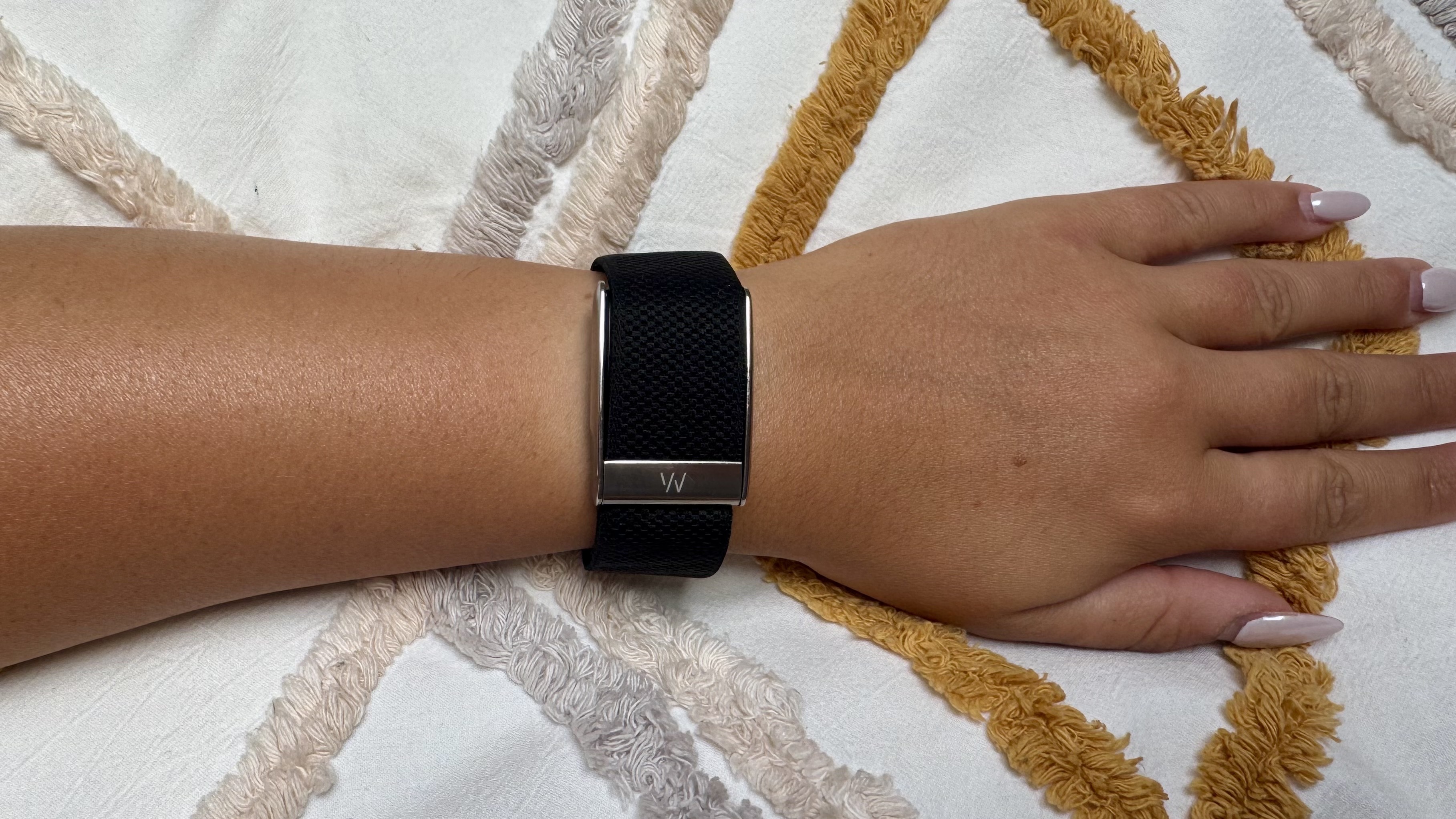
I’m obsessed with my sleep stats, and wear my Whoop tracker religiously to monitor how I’ve slept every night (yes, even on those sleepless nights).
It helps me track how much deep sleep, REM sleep and light sleep I’ve had every night, along with how other factors, such as stress and movement, affect how well I’ve slept.
If I’ve had a poor night's sleep, which can sometimes happen in the winter, the tracker will recommend rest and an earlier bedtime the next day — I love how personalised it is.

Sarah is a freelance writer who has been published across titles including Woman & Home, The Independent, and the BBC. Sarah covers a variety of subjects, including health and wellness. For Tom's Guide Sarah often writes about sleep health and hygiene, and interviews leading sleep experts about common issues such as insomnia and sleep deprivation.
You must confirm your public display name before commenting
Please logout and then login again, you will then be prompted to enter your display name.
 Club Benefits
Club Benefits





